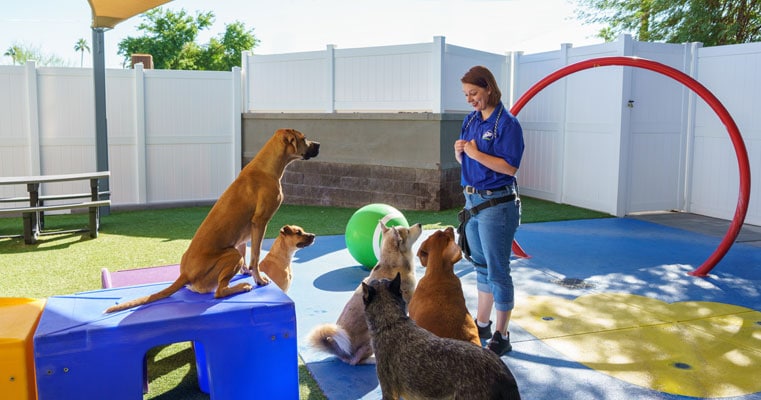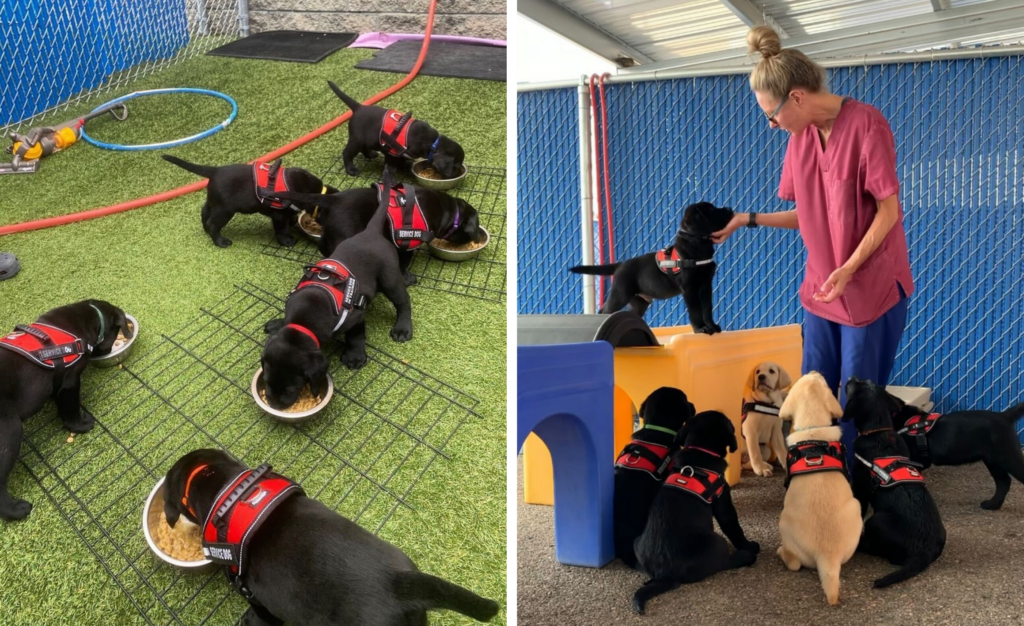Dog Training Techniques to Help Manage Aggressive Behavior in Dogs
Dog Training Techniques to Help Manage Aggressive Behavior in Dogs
Blog Article
Transform Your Pet dog's Habits With Proven Training Methods
Changing your dog's behavior calls for a nuanced understanding of their individual attributes and requirements, in addition to the application of proven training techniques. By employing positive reinforcement and acknowledging crucial hints in their body language, you can successfully attend to usual behavioral issues such as too much barking or leaping. Consistency in your training strategy not just improves obedience yet likewise cultivates a much deeper bond of trust and regard between you and your family pet. Nevertheless, the course to successful change might present unanticipated difficulties that warrant further exploration.
Understanding Pet Dog Habits
Recognizing canine behavior is crucial for effective training and interaction between people and their canine companions. Dogs, as social pets, display a series of actions affected by genetics, atmosphere, and experiences - Dog training. Recognizing these actions aids owners customize their training approaches to meet the specific needs of their dogs
Secret elements of pet behavior consist of body movement, vocalizations, and social communications. For instance, a wagging tail often shows excitement, while a decreased head might signify entry or concern. Recognizing these signals can help proprietors analyze their canine's mood and respond suitably. Furthermore, socialization plays a crucial role in shaping behavior; canines that engage positively with various individuals and various other pets are normally much more well-adjusted and versatile.
Moreover, recognizing stress signals-- such as panting, avoidance, or pacing behaviors-- can avoid rise right into more serious issues. Proprietors that are attuned to their canine's habits can create a caring and risk-free setting, fostering depend on and enhancing the training process. Eventually, a deep understanding of canine habits lays the structure for a harmonious relationship and efficient training end results, making sure both pet dogs and their proprietors prosper with each other.
Favorable Reinforcement Techniques
Favorable support strategies are extensively acknowledged as one of one of the most effective techniques for training canines, fostering a positive discovering setting. This technique includes gratifying wanted actions with treats, appreciation, or play, consequently encouraging the dog to duplicate those habits. Unlike revengeful methods, favorable reinforcement develops trust and reinforces the bond between the trainer and the pet dog.
Rewards must be provided promptly adhering to the preferred actions to aid the pet make the link. Consistency is also crucial; using the exact same commands and incentives helps the dog recognize what is expected.
It is necessary to keep in mind that favorable reinforcement is not regarding bribery; rather, it has to do with strengthening great actions. Gradually, as the pet discovers to associate specific activities with positive outcomes, the frequency of benefits can be progressively minimized, transitioning to verbal praise or intermittent benefits. This technique not just encourages obedience yet additionally advertises a confident and delighted canine, making training an extra satisfying experience for both parties entailed.
Addressing Typical Concerns
Resolving typical concerns throughout dog training is necessary for ensuring a effective and harmonious relationship between the canine and its proprietor. Lots of pet owners run into behavior challenges, such as excessive barking, jumping, and leash drawing. Recognizing the origin of these actions is critical for reliable training.
To alleviate this, offer adequate physical exercise, psychological stimulation, and opportunities for social communication with both humans and other canines. Training the canine to rest upon welcoming can redirect this habits positively.
Chain drawing is an additional widespread problem, frequently resulting from a dog's passion to discover. Using correct chain taking care of methods, integrated with Resources training procedures that motivate loose-leash walking, can dramatically boost this habits.
Additionally, concerns like source securing or separation anxiousness require customized techniques. Steady desensitization and counter-conditioning can be reliable in attending to these challenges. By recognizing and proactively handling these typical problems, canine owners can cultivate a much more satisfying training experience and strengthen the bond with their canine friends.
Uniformity in Training

To accomplish consistency, it is essential that all members of the family stick to the same training approaches. For find more example, utilizing the same spoken hints and hand signals makes sure that the pet receives uniform messages. In addition, the timing of adjustments and benefits must correspond; immediate reinforcement boosts the chance that the pet will associate the actions with the outcome.
Regular practice sessions, combined with structured schedules for feeding, walking, and play, aid dogs prepare for and comprehend their atmosphere, making them extra responsive to training. Ultimately, uniformity cultivates a feeling of security and count on, encouraging pets to discover extra successfully.
Building a Strong Bond
How can cultivating a solid bond between a dog and its proprietor improve the training experience? A strong partnership improved trust fund and regard offers as the foundation for reliable training. When a pet feels safe in its connection with its proprietor, it is more probable to display positive habits and be responsive to finding out. This bond motivates the pet dog to engage fully in training sessions, as it checks out the owner as a source of assistance and assistance.
In addition, a solid bond facilitates far better interaction. Dogs are proficient at reading human cues, and a trusting connection enables for more clear signals during training. Owners that spend time in building this bond with play, socialization, and positive reinforcement develop a setting where pets feel motivated and anxious to discover.
Additionally, a well-established connection can decrease anxiousness and behavioral concerns, as canines are less most likely to act out when they really feel understood and taken you can look here care of. Prioritizing the advancement of a solid bond not only improves the training experience however additionally contributes to a better and more well-adjusted pet. Inevitably, the journey of training changes into a joint collaboration, causing lasting behavioral improvements.
Final Thought

Owners that are attuned to their pet dog's habits can develop a safe and nurturing atmosphere, fostering depend on and improving the training procedure. Eventually, a deep understanding of canine actions lays the structure for a harmonious partnership and efficient training end results, guaranteeing both pet dogs and their proprietors grow together.
Resolving common problems throughout pet dog training is necessary for making sure a harmonious and successful connection between the pet and its owner.Consistency is a foundation of reliable dog training, as it establishes a clear structure for the pet to understand assumptions and habits.In conclusion, transforming a pet's behavior through verified training techniques calls for an understanding of canine habits, the application of positive reinforcement methods, and a focus on uniformity.
Report this page